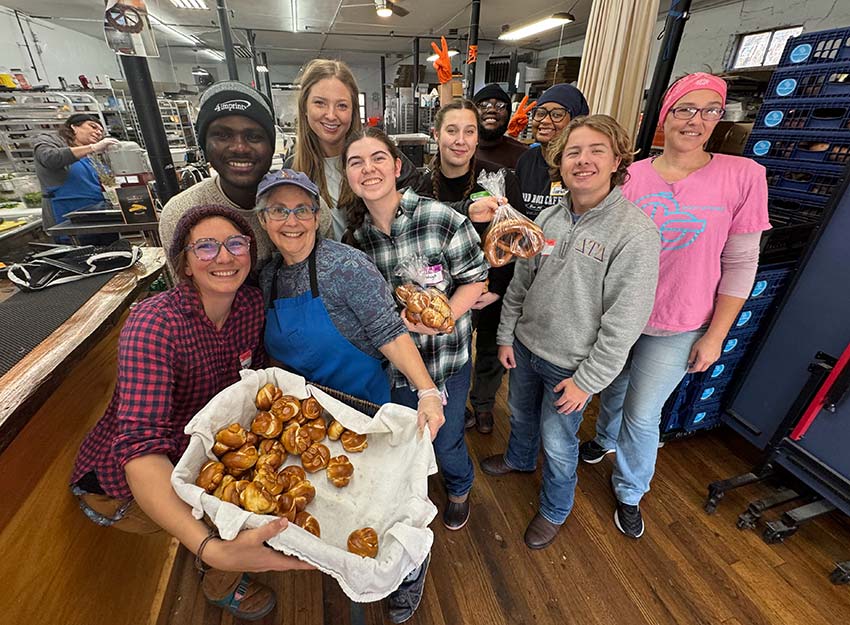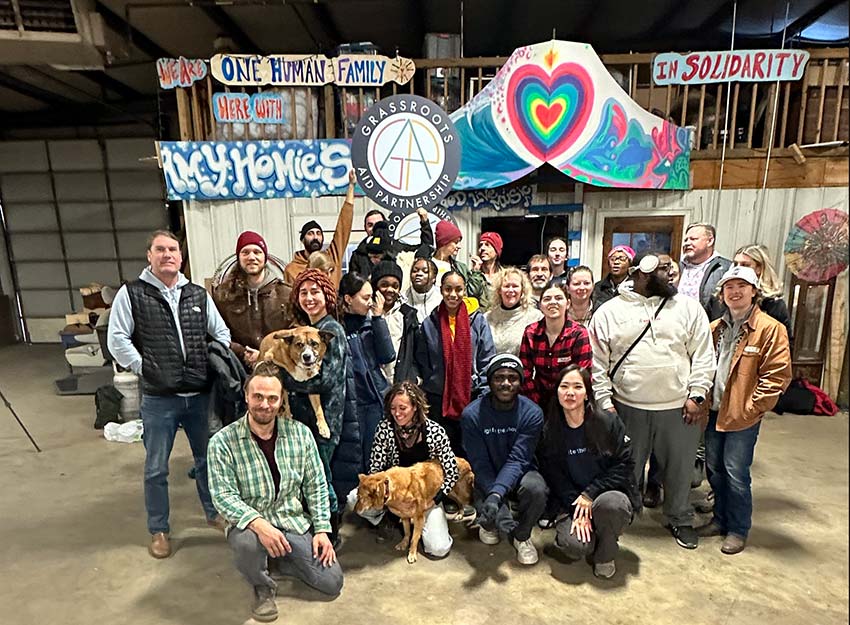Doing Unto Others: How One Converse Student Made a Tangible Impact After Hurricane Helene

Written by Amanda Mathis
Friday, September 27, 2024, changed thousands of lives in Upstate South Carolina and Western Appalachian North Carolina. Hurricane Helene, a deadly and devastating storm, traveled up the eastern United States and brought historic rainfall-triggered flooding and strong winds. It is considered one of the deadliest U.S. storms of the 21st century, resulting in 249 confirmed deaths. The area suffered an estimated $59.6 billion in damages in North Carolina, leaving an estimated 4.6 million people – more than 40 percent – of the state’s population without water, necessities, and homes.
That day impacted many Converse University students, especially Ashleigh Austin, ’27, who was celebrating her 20th birthday the next day.
“I knew I wanted to make a bigger impact and help others affected.”
Ashleigh Austin ’27
Austin, a Business Administration major at Converse is one of Converse’s four Sullivan Fellows, part of The Algernon Sydney Sullivan Foundation Fellowship program with students from twenty other schools. In fall 2024, The Algernon Sydney Sullivan Foundation created the Sullivan Service Corps in response to the crisis of Hurricane Helene. The program provides “service into direct, hands-on action” by placing “boots on the ground” to make a tangible impact on needy communities. The program organized a second trip in January 2025, and 22 volunteers from Sullivans Fellows, Sullivan staff, and Sullivan network school faculty and students joined for five days to help small towns still recovering from the storm.
The organizations focused on four community nonprofits: Root Cause Farm, Equal Plates Project, and Grassroots Aid Partnership (GAP), and participated in cleanup at Old Fort, NC. Each group was key to the recovery effort of this struggling area, and the trip focused on hurricane recovery and food security initiatives.
Doing unto others.
Austin’s first volunteer role started at Blunt Pretzels, an artisanal pretzel bakery in Swannanoa, NC. This small business provides free community meals and feeds an average of 200 people each day.
Later, she helped Root Cause Farm, assisting in winterizing crops to ensure the farm would continue providing locally grown food for the following year.

Her week continued with volunteering at Equal Plates, where the Service Corps gave the kitchen staff a break as the group prepared and distributed thousands of meals to area residents.
“My role for Equal Plates was placing labels on plastic containers and different color stickers, which might sound unnecessary,” reflected Austin. “But I felt it was my most important role to be a part of a larger picture of feeding families who were still in need of food assistance post hurricane.”
“It’s clear that Converse University is producing outstanding students, and Ashleigh is a shining example of that excellence.”
Steven McDaniels, president of The Algernon Sydney Sullivan Foundation
At Grass Aid Partnership, which provides clean water and food to hurricane victims, Austin and the team moved an entire warehouse filled with supplies to aid in future relief efforts. The team spent time in Old Fort, NC, cleaning up the remaining damage and supporting the restoration of community projects.
“I knew I wanted to make a bigger impact and help others affected,” said Austin. “Meeting people from other colleges made me feel like I belonged.”
Steven McDaniels, president of The Algernon Sydney Sullivan Foundation, noticed Austin’s hard work during the trip.
“Whether helping out in food preparation at Equal Plates Project or aiding in other Foundation-sponsored recovery efforts in Old Fort, Ashleigh exemplified the values of service and leadership the Foundation recognizes,” said McDaniels. “Ashleigh left a lasting impression on our team and the communities we served. It’s clear that Converse University is producing outstanding students, and Ashleigh is a shining example of that excellence.”
When asked about the impact of her trip, Ashleigh replied, “Many people might have thought that the aftermath of Hurricane Helene in North Carolina was over and that life had returned to normal. In my opinion and experience – it is barely finished.”